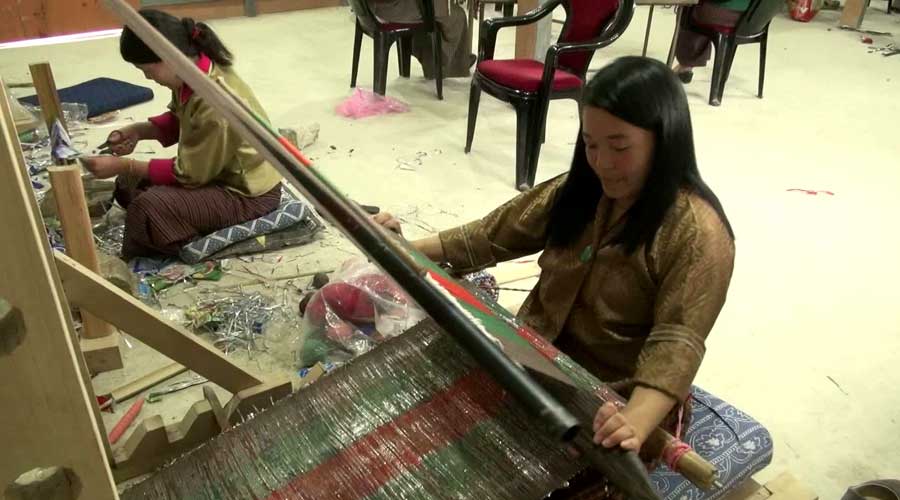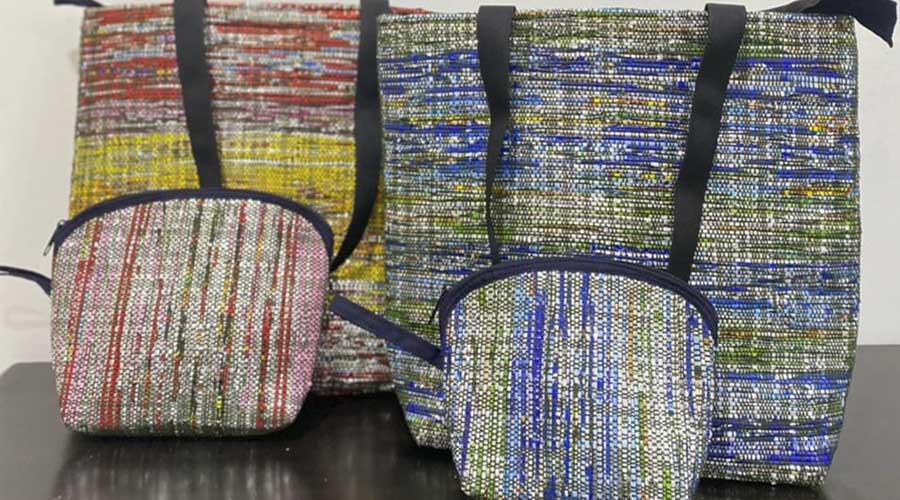
These days, almost all imported goods come in plastic packaging. And after using the product or consuming it, the plastics are dumped in a landfill. The plastic wastes then take years to decompose. So, to minimise the waste going to the landfill and the import of plastic bags, a month-long handloom weaving program using plastic is underway in Trongsa.
 Jamyang Tshoki from Monggar, one of the participants is weaving using plastic waste. Although she has been weaving for years, this is her first-time weaving bag from plastic waste.
Jamyang Tshoki from Monggar, one of the participants is weaving using plastic waste. Although she has been weaving for years, this is her first-time weaving bag from plastic waste.
“This kind of training benefits us. Likewise, it helps to minimise waste. So, we feel proud and productive when we can collect wastes and weave out of them,” said Jamyang Tshoki, a participant.
 Like her, there are 19 other participants. They are from Thimphu, Paro, Wangdue Phodrang, Trongsa, Bumthang and Monggar. They are trying to make handbags and carry bags which look just like imported ones.
Like her, there are 19 other participants. They are from Thimphu, Paro, Wangdue Phodrang, Trongsa, Bumthang and Monggar. They are trying to make handbags and carry bags which look just like imported ones.
“Handbags, foot mats, couch covers are all imported. These can be minimised and this training is a good opportunity for youth,” said Tshering Pelden, an instructor at Wangsel Institute for the Deaf in Paro.
 “We are now able to make pencil bags, handbags, laptop bags and cushion covers. Such products are expensive. But if we can make it, then it has an advantage,” said Padma Rai, another participant.
“We are now able to make pencil bags, handbags, laptop bags and cushion covers. Such products are expensive. But if we can make it, then it has an advantage,” said Padma Rai, another participant.
“We will be able to reduce waste significantly with this kind of initiative. For instance, ten sacks of plastics are required for a weaver,” said Chogyal Lhamo, a trainer.
However, according to the trainers, people need to segregate the waste properly before dumping it so that the plastics can be reused for weaving.
Once the training is complete, they will go back to their districts and impart the skills to others. The programme will end on Sunday.
Besides contributing to sustainable waste management, the training with fund support from National Environment Commission Secretariat is targeted to facilitate livelihood and provide opportunities for people living with disabilities in Bhutan.
Passang, Trongsa
Edited by Tshering Zam





